- Home
- Anne Frasier
The Body Counter Page 2
The Body Counter Read online
Page 2
The governor’s death had polarized the state, turning Jude into a hero or villain, depending on one’s perspective. She’d seen the negative press about her, and she would’ve liked to say it didn’t bother her, but that would be a lie. It was hard enough to take a life, but to take the lives of people you’d grown up with, at one time even loved? No matter that she’d saved lives in the process.
The department psychologist had suggested she take a year off, but a year off would mean a year of looking at herself more closely than she wanted to. Instead, she’d stayed in Homicide, dutifully gone to therapy, and privately obsessed over certain things in ways that might be considered unhealthy. Along with that, she carried an emptiness inside that had nothing to do with the loss of her old self. That would make too much sense.
Minnehaha Creek Theater was located in Longfellow, a Minneapolis neighborhood of small bungalows built in the thirties, now occupied by singles or young couples. It was an area of town Jude had visited a few times, but not recently, not in this new rendition of herself.
Arriving at the theater, she adjusted her bike on its stand and strode down the sidewalk, past flashing emergency vehicles, a coroner van, and police cars. At the intersection near the theater, she glanced up, reassured by a surveillance camera. Hopefully they’d have footage. The marquee advertised two action movies from several years back.
A young cop stood near the entrance, positioned to keep out the uninvited. He gave her a nod of recognition as the scent of popcorn, along with a sense of horror, wafted through the open door. “Screening room two.”
“Who was the first responder?” Jude asked.
“Not sure, but one of the ushers discovered the bodies after the show ended.”
A member of the crime-scene team squeezed past them, a processing kit in her hand. Jude thanked the officer at the door and stepped into the controlled chaos of the lobby.
Cops with tablets and pens took statements from young people in red vests. With a surreptitious glance, Jude read their stances and expressions, noting whether anyone was sweating or fidgeting—all signs of possible involvement or guilt. She spotted no tells.
As she cut through the throng, she checked high along walls and ceiling, looking for security cameras, seeing none. Plastic numbered cards trailed down the center of the red-carpeted hallway, marking a path of dark smudges leading from screening room two. Blood tracked by shoes. It could have been picked up by anybody exiting the theater. Regardless, she crouched and examined the prints, snapping photos with her camera.
Just inside the heavy door, Jude stepped back to give herself a few minutes to take in the scene. The theater needed a serious update. Paint was peeling, and some of the red-velvet seats were tilted at odd angles and worn bare in places. Like most small businesses in Minneapolis, the movie house was struggling, more so in the aftermath of the blackouts and fires that had brought higher crime and vandalism to an already-volatile city. The blackouts were over, but the violence spurred by the darkness still lingered. Some of their best cops had transferred out, consigning the force to a high percentage of newbies, the nervous, and the inexperienced.
Yellow tape had been strung around three areas of the screening room. Unusual to use tape inside, but the layout presented a unique problem and the scene had to be contained. Three clusters of crime-scene personnel. From her location, she couldn’t see a body.
Her partner and head homicide detective Uriah Ashby spotted her and crossed the theater. He’d thrown himself together, the goal to reach the scene as quickly as possible, not dress for success. Like her, he wore jeans, the differences being his black hoodie and her leather jacket. His curly brown hair was a mess, his expression alert, considering the hour and his love of sleep.
Homicides woke you up fast, but even this new horror wasn’t enough to chase away the dark mood of Jude’s dream. She never remembered the nightmare, yet she couldn’t shake the cloud of ineffable sorrow and fear it left in her heart, along with a despair that made this scene, this killing, feel less real than that place in her mind she couldn’t even remember.
With a jerk of his head, Uriah motioned for Jude to join him in a private corner, away from the nearest people. As she passed them, she saw Caroline McIntosh among the detectives. The woman’s obvious attraction to Uriah, not to mention her penchant for inappropriate comments, was a source of amusement in the department. Jude had once tried to advise her against being so transparent, but that hadn’t gone over well.
“Not everybody wants to be an unemotional robot,” Detective McIntosh had said. Jude now kept her distance.
“Sliced throats.” Uriah’s whispered words were delivered with grim expectation.
That was interesting—it was an MO they’d seen before, and recently. “Witnesses?”
“Not yet.”
Three dead bodies, evenly spaced, no witnesses. It seemed like an impossible feat to pull off. And the sliced throats . . . Everybody in the room was probably thinking about the two murders barely three weeks old, unsolved, each involving a victim whose throat had been sliced—one of the slayings having taken place in a restroom, another in a city park. Something like that was especially hard to get away with today because of numerous security cameras throughout the city. These weren’t crimes of passion. They’d taken planning.
“It feels like another possible thrill kill to me,” Uriah said.
She nodded. And killings of strangers were the hardest to solve.
“The seats and slanted floor are making it hard to process the scene,” he added. “Too many people, too little space, so we’re rotating in and out. We can get a good look at the bodies once the crime-scene team has done a preliminary.”
“Victims?”
“All male.” The earlier victims had been too, but that didn’t necessarily mean anything.
“IDs?”
He rattled off names that at this point meant nothing. “One has a DUI on his record, one a few parking tickets. From here, it seems they were pretty average citizens.”
Anybody could look average on paper. “We’ll have to dig a little deeper, see if they might have known one another.” Unlikely, though.
Uriah pointed out the first responder and Jude excused herself to talk to her. “No witnesses?” she asked for the second time.
The cop rested her hand on her belt and shook her head.
“In a theater full of people, nobody saw the murders or even noticed these guys were dead?”
“It wasn’t a full house.”
Someone sitting alone, near the center of a row, might go unnoticed if no one had to step past or around him. “Has a weapon been found?”
“We have people checking trash containers and canvassing inside and out, but nothing yet.”
“What about the usher who discovered the bodies?”
“He’s pretty shaken up and didn’t give me much information. I was hoping you could get more out of him. Tall, skinny, red hair, name is Mitchell Davidson. Last time I saw him he was in the lobby.”
That was where Jude found him.
The poor kid was a mess. Face was pale, eyes bloodshot, and he gave off a suspicious whiff of vomit as he clutched a popcorn bucket to his chest.
“Mitchell Davidson?” Jude asked, even though she knew this was her guy. Upon closer inspection, she noted he was sweating profusely. She knew an oncoming faint when she saw one. She urged him into a chair and he dropped like his legs had been kicked out from under him.
“Down.” She removed the bucket from his hands and gave the back of his head a gentle shove forward. “Between your knees.”
While he recovered, she slipped behind the concession stand and grabbed a bottle of water from the small glass-doored refrigerator. She doubted the theater owner would care, all things considered. Back at Mitchell’s side, she uncapped the bottle and offered it to him, helping him sit up straight again. “Small sips.” While he nursed the water, she pulled a chair near and sat quietly beside him. When his color began
to look a little better, she started asking questions.
He told her about the moment he realized the man in the theater was really dead. “I’ve never seen a dead body before.” He glanced at her but didn’t hold eye contact. “You’re probably used to it.”
“You never get used to it,” she told him.
She got to what she really wanted to know, and what she wanted him to try to remember before his evening had been overrun by the horror of the past hour. “Did you see anybody suspicious? Somebody who gave you a feeling you couldn’t explain? That can happen. People call it a sixth sense, but I just think it’s a throwback to survival instinct. Anybody and everybody has it, if they pay attention.”
She knew about survival instinct. Surviving had fine-tuned her senses when it came to reading other people. But lately, especially after a dream-filled night, she caught herself trying to dull those senses.
“That’s half the people in here,” Mitchell said, “especially at a late-night screening. I mean, my job is to make sure people aren’t making out or . . . you know.” He squirmed.
“Masturbating?”
Faint color rushed back to his face. “I don’t get it. It’s not like we show porn, but they do it anyway.”
“I think it’s something to do with being in a public space,” she told him. “With people nearby. The risk and thrill of possibly getting caught. The rush.”
“They should jaywalk instead.”
She smiled slightly, appreciating his attempt at humor, then got back to the questions. “Did you see anybody who raised any suspicion above and beyond your normal red flags?”
He considered for a moment before shaking his head. “I don’t think so.”
“Maybe something will come to you later.” She said that while wondering if he could possibly have committed the crimes. This boy, this hardly-more-than-a-child, appeared innocent, but sociopaths were difficult and often impossible to read because they didn’t have the tells people with a conscience revealed.
“I doubt it, but I’ll try.”
“Don’t force it.” That could result in false memories. “You’re going to have to go downtown so we can take your statement officially. An officer will give you a ride.”
“Am I a suspect?” He didn’t seem alarmed. Shock did that. People never reacted in the way regular citizens expected them to; often odd and unconcerned behavior was mistaken for guilt.
“It’s standard procedure to officially document an interview,” she explained.
“Who’ll do it? You?”
“I can, but if you’d rather have someone else, a male detective, that’s fine.”
“I’d like it to be you.” He looked down, flustered and a little embarrassed by his next words. “I know who you are. That was some pretty badass stuff you did in the middle of the highway. It was like a movie. I saw it on the news.” He zeroed in on the part of the story he could most relate to. “Rescuing that girl and all.”
It was hard for Jude to go unnoticed in Minneapolis. Her short white hair stood out, but she refused to dye it. She’d fought too hard to get back to this world. She wasn’t going to pretend she was someone else now that she was here.
“Do you think I’m in danger?” Mitchell asked.
She could break it down for him. Tell him there was a small risk, but that wasn’t the answer he was looking for. Some people wanted the truth and some people wanted lies. She wasn’t willing to lie for him, but she softened her reply. “I doubt it, but it wouldn’t hurt to keep your eyes open.” She reached inside her leather jacket. With two fingers, she pulled out a business card and handed it to him. “If you see anything suspicious, call my cell, day or night.”
That at least gave him some of the reassurance he was looking for.
A minute later she introduced him to the officer who’d take him downtown, and then she returned to the heart of the theater. The clusters around the bodies had shrunk and she approached, ready to take her turn. Crime-scene techs from the BCA—the Bureau of Criminal Apprehension—moved aside so Uriah, Jude, and Caroline McIntosh could examine the first body while Medical Examiner Ingrid Stevenson waited, arms crossed.
Male. Probably in his late thirties.
Jude leaned closer, and someone handed her a flashlight so she could get a better visual in the less than adequate theater lighting. She clicked it on and passed the beam across the man’s face. Leathery, suntanned skin. Hands that were also dark and weathered. Construction worker, possibly. Worn jeans and severely scuffed boots backed up that theory. It wasn’t until she was done getting a sense of the man that she brought the beam to his neck to scrutinize the gaping wound.
“That took some serious strength,” Uriah said.
“Or possibly serious adrenaline.” She’d recently met a repeat burglar whose MO was to climb a rope to escape the buildings he was robbing, but he couldn’t climb one under any other conditions.
Adrenaline was powerful.
“Weapon?” Jude asked Ingrid.
The woman was brusque, about fifty, one of those Minnesota Swedish blonds who were a real thing. She was also one of the state’s best medical examiners. “I’ll be able to tell you more once I do the autopsies.” Ingrid didn’t care to speculate, especially on-scene.
Jude clicked off the flashlight, handed it to Uriah, and stepped back.
“Hey, got something for you,” McIntosh said. She produced a heavy sheet of paper, unfolded it, and passed it over. Jude expected something to do with the crime, but no.
The already-slanted floor shifted more, and she braced her legs as she stared at the auction flyer in her hand. A picture of a house. Just a house. Just bricks and stucco and broken glass. And inside would be a basement. The basement where she’d been kept for three years.
“What the hell, McIntosh?” Uriah asked angrily.
With a stiff and jerky movement, Jude pulled her gaze from the sheet of paper to take vague note of her partner’s glare.
Color bloomed in McIntosh’s face, but she managed a nonchalant shrug. “Just thought she should know.” She’d obviously been carrying the flyer around, waiting for an opportune moment to deliver it. This was not opportune; this seemed like a moment specifically designed to get back at Jude and humiliate her in front of her colleagues.
Uriah wasn’t falling for the woman’s innocent act. “I don’t know what you’re up to, but stop it.”
“It’s no secret.” McIntosh lifted her chin, defensive. “Everybody’s wondering who would even buy it.”
One of the cops chimed in. “I could see someone exploiting it. Like making it a house of horrors or something.”
“We should bid on it and burn it down,” another cop said.
Someone let out a faint murmur at the inappropriate conversation. Others nodded. Mesmerized, Jude went back to staring at the flyer in her hand.
Ingrid straightened and snapped off her gloves. “Could we have a little more professionalism here?”
“Just making conversation,” McIntosh said. “It helps sometimes.”
“The only thing you should be talking about is the crime,” Uriah said. “This crime.”
Jude pulled her gaze from the photo again. McIntosh looked near tears. Reprimanded by both the ME and Uriah. At a crime scene.
“It’s okay,” Jude said, trying to soften McIntosh’s public flogging because she didn’t like seeing anybody in pain. “I’m glad to get the information.”
She folded the paper and tucked it inside her leather jacket. Once the image was stashed close to her skin, she could feel its vibration and promise. Truth was, she already knew about the upcoming sale. And she had plans of her own.
CHAPTER 4
Could you please, for the record, state your name and address?”
Jude sat across from Mitchell Davidson at a small desk in one of the interrogation rooms of the Minneapolis Police Department. The ceiling camera’s green light was on, along with the digital recorder Jude had placed on the table between them.
Eight hours had passed since the call to 911 had come in, and neither Jude nor Uriah had slept. The murder victims were scheduled for autopsy. Video footage from surveillance cameras had been uploaded to the department’s virtual private network. Mitchell was still nervous, but most people sitting in his seat typically were. Like when a cop stopped you even though you were doing nothing wrong. Most people got flustered. And the ones who didn’t often had something to hide.
He gave her his name and address. “I live with my parents.” Then he answered her question about his typical day with “I’m in high school.” That pretty much said it all.
“Can you tell me what happened in the early-morning hours of September fifteenth?”
With halting words, he explained it all again. About how he’d walked down the aisle to tell the person to leave. How he shook the guy’s shoulder and saw his head flip back. The lights were turned on and 911 was called.
She dug deeper.
“What about before the movie started? What was that like?”
Nothing to add. He tried, but she didn’t want him making things up just to have a response.
“You took tickets.” It might be better to focus on small things. “Did anything or anybody make you feel uneasy? A feeling. A face. An expression. Hands. Calloused hands, soft hands. Odors you might recall?”
He squirmed. “I don’t usually make eye contact when I’m taking tickets. I just don’t.” He didn’t look up. “People call me shy, but I don’t know if that’s right. I’m just not that social. And I’m focusing on the next hand and the next ticket, not the face or person.”
“Sometimes shy people are the most observant.”
“Like you?”
She smiled. “I don’t think I’m shy either. I’m just . . . reserved.” She got to her feet. “I’m going to grab some water. Would you like something? Soda? Coffee?”
“Coke.”
She deliberately gave him time alone to reflect without the distraction of her presence. A few minutes later, she returned with a can of soda and slid it across the desk. She removed the cap on her water bottle.

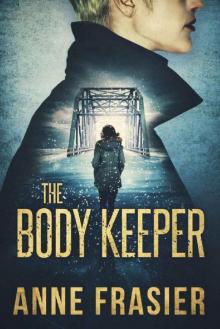 The Body Keeper
The Body Keeper Hush
Hush Play Dead
Play Dead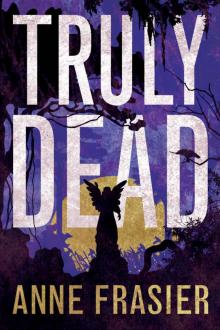 Truly Dead
Truly Dead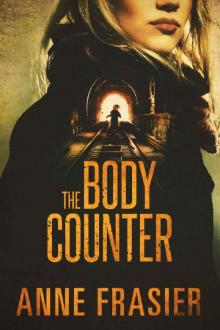 The Body Counter
The Body Counter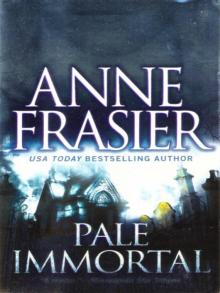 Pale Immortal
Pale Immortal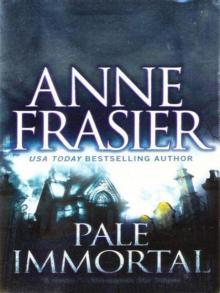 (2006) Pale Immortal
(2006) Pale Immortal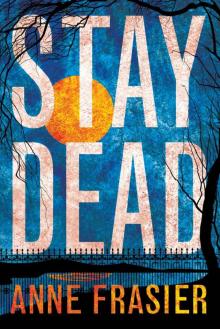 Stay Dead (Elise Sandburg series)
Stay Dead (Elise Sandburg series)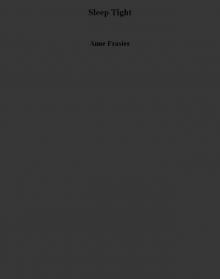 Sleep Tight
Sleep Tight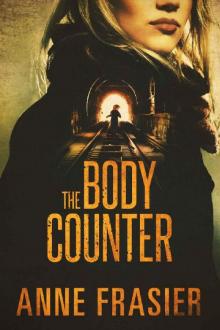 The Body Counter (Detective Jude Fontaine Mysteries Book 2)
The Body Counter (Detective Jude Fontaine Mysteries Book 2)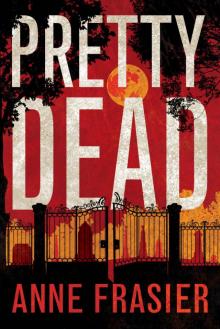 Pretty Dead
Pretty Dead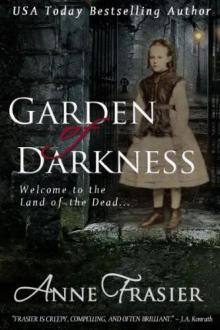 Garden of Darkness
Garden of Darkness